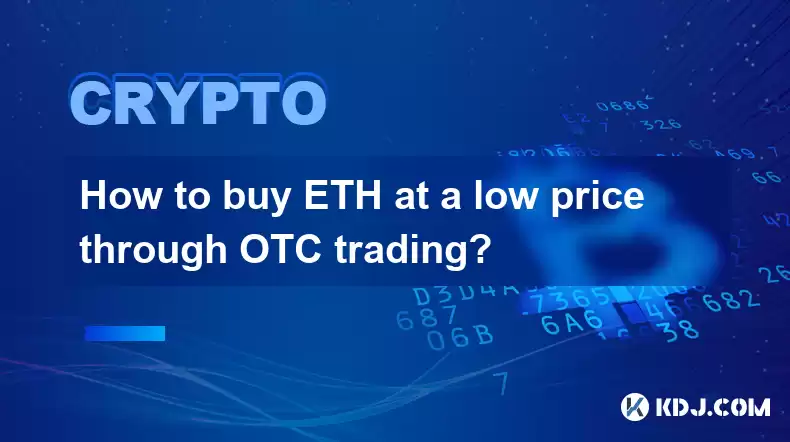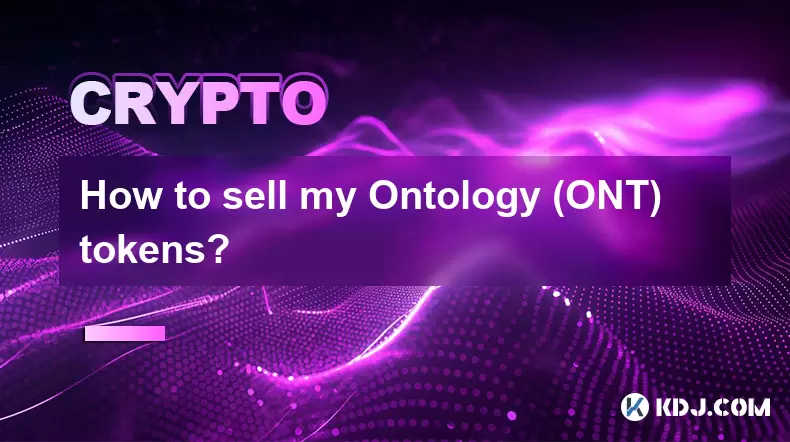-
 Bitcoin
Bitcoin $116900
0.00% -
 Ethereum
Ethereum $4280
5.48% -
 XRP
XRP $3.265
-1.45% -
 Tether USDt
Tether USDt $1.000
-0.01% -
 BNB
BNB $807.0
1.41% -
 Solana
Solana $183.1
2.93% -
 USDC
USDC $0.9999
0.00% -
 Dogecoin
Dogecoin $0.2440
6.50% -
 TRON
TRON $0.3357
-0.88% -
 Cardano
Cardano $0.8178
2.63% -
 Hyperliquid
Hyperliquid $44.13
7.45% -
 Chainlink
Chainlink $21.39
9.09% -
 Stellar
Stellar $0.4524
-0.84% -
 Sui
Sui $3.957
2.13% -
 Bitcoin Cash
Bitcoin Cash $572.7
-2.54% -
 Hedera
Hedera $0.2671
1.54% -
 Avalanche
Avalanche $24.77
4.17% -
 Ethena USDe
Ethena USDe $1.001
0.02% -
 Litecoin
Litecoin $122.3
-1.94% -
 Toncoin
Toncoin $3.432
2.26% -
 UNUS SED LEO
UNUS SED LEO $9.007
0.49% -
 Shiba Inu
Shiba Inu $0.00001396
5.26% -
 Uniswap
Uniswap $11.09
1.64% -
 Polkadot
Polkadot $4.155
4.57% -
 Dai
Dai $1.000
0.00% -
 Pepe
Pepe $0.00001253
5.11% -
 Cronos
Cronos $0.1588
2.67% -
 Bitget Token
Bitget Token $4.512
0.05% -
 Monero
Monero $275.0
0.64% -
 Ethena
Ethena $0.7527
15.10%
How to buy ETH at a low price through OTC trading?
OTC ETH trading allows direct negotiation between parties, offering privacy and potentially better prices, but requires thorough due diligence and understanding of market risks.
Mar 28, 2025 at 09:35 pm

Understanding Over-the-Counter (OTC) ETH Trading
Over-the-counter (OTC) trading refers to transactions conducted directly between two parties, without the involvement of a centralized exchange. This contrasts with exchange trading, where buyers and sellers interact through an order book. In the cryptocurrency world, OTC trading often involves larger transactions and can offer advantages in terms of price and privacy, especially for high-volume ETH purchases. However, it also requires more due diligence and a higher level of market understanding. Finding a reputable OTC broker is crucial for a successful and secure transaction.
Finding a Reputable OTC Broker
Finding a trustworthy OTC broker is the first crucial step. This involves thorough research and careful vetting. Look for brokers with a proven track record, positive reviews, and transparent fee structures. Avoid brokers with suspiciously low fees or those lacking verifiable references. Check their regulatory compliance and security measures to ensure the safety of your funds. Consider brokers specializing in institutional-grade services for more robust security and support. Remember, your due diligence directly impacts the security and success of your transaction.
Negotiating the Price for Your ETH Purchase
Negotiating the price is a key aspect of OTC trading. Unlike exchanges with fixed prices, OTC allows for direct negotiation between buyer and seller. Market research is essential to understand the current ETH price across different exchanges and identify a fair price point. Your negotiating leverage often depends on the volume of ETH you intend to buy; larger purchases generally attract better prices. Be prepared to justify your offer with market data and demonstrate your seriousness as a buyer. Remember, patience and persistence are vital in achieving a favorable price.
Understanding Fees and Payment Methods in OTC ETH Trading
OTC brokers typically charge fees for their services. These fees can vary depending on the transaction size, payment method, and broker. It's crucial to understand the complete fee structure upfront to avoid unexpected costs. Common payment methods include wire transfers, stablecoins, and sometimes even fiat currencies. Each method has its own processing time and potential fees. Discuss these details with your broker beforehand to ensure a smooth and transparent transaction. Be wary of hidden fees or unusual payment requests.
Step-by-Step Guide to Buying ETH via OTC
Here's a step-by-step guide to purchasing ETH through an OTC broker:
- Find a reputable OTC broker: Conduct thorough research and select a broker that meets your needs and risk tolerance.
- Contact the broker: Reach out to the broker and express your interest in purchasing a specific amount of ETH.
- Negotiate the price: Discuss the price with the broker, considering market conditions and your desired volume.
- Agree on payment terms: Determine the payment method and associated fees with the broker.
- Complete the transaction: Once you agree on the terms, complete the payment and receive your ETH.
- Verify the transaction: After receiving the ETH, verify the transaction on the blockchain to ensure its completion.
Security Considerations for OTC ETH Transactions
Security is paramount in OTC trading. Never share your private keys or seed phrases with anyone. Only use secure communication channels when interacting with brokers. Verify the broker's identity and legitimacy before proceeding with any transaction. Use a secure wallet to store your purchased ETH. Be aware of phishing scams and other fraudulent activities. A cautious approach to security can significantly reduce your risks.
Legal and Regulatory Aspects of OTC ETH Trading
The legal and regulatory landscape for cryptocurrency trading varies significantly across jurisdictions. It's crucial to understand the regulations in your region before engaging in OTC trading. Some jurisdictions have specific rules regarding cryptocurrency transactions, including KYC (Know Your Customer) and AML (Anti-Money Laundering) compliance. Failure to comply with applicable regulations can lead to legal consequences. Consult with legal professionals if you have any doubts about the legality of your actions.
Risks Associated with OTC ETH Trading
While OTC trading can offer advantages, it also carries certain risks. Counterparty risk is a significant concern, as you are dealing directly with another party. There's a risk of fraud or non-delivery of ETH. Market volatility can also impact the price you ultimately pay. Liquidity can be an issue, especially for very large transactions. Understanding these risks is crucial before engaging in OTC trading.
Frequently Asked Questions
Q: Is OTC trading safer than exchange trading?
A: Both have their own risks. OTC offers more privacy but introduces counterparty risk. Exchanges are more transparent but have their own security vulnerabilities. The "safer" option depends on your risk tolerance and transaction size.
Q: How do I find a reputable OTC broker?
A: Look for brokers with a strong track record, positive reviews, transparent fees, and clear regulatory compliance. Verify their identity and legitimacy through multiple sources.
Q: What are the benefits of buying ETH via OTC?
A: Potential for lower prices (especially for large volumes), increased privacy, and the ability to negotiate directly with the seller.
Q: What are the payment methods for OTC ETH transactions?
A: Common methods include wire transfers, stablecoins, and sometimes fiat currencies. The specific methods available vary depending on the broker.
Q: What if the OTC broker doesn't deliver the ETH after payment?
A: This is a significant risk of OTC trading. Thorough due diligence and choosing a reputable broker can mitigate this, but it's not entirely avoidable. Dispute resolution mechanisms may vary depending on the broker and jurisdiction.
Disclaimer:info@kdj.com
The information provided is not trading advice. kdj.com does not assume any responsibility for any investments made based on the information provided in this article. Cryptocurrencies are highly volatile and it is highly recommended that you invest with caution after thorough research!
If you believe that the content used on this website infringes your copyright, please contact us immediately (info@kdj.com) and we will delete it promptly.
- Penny Crypto Dreams: Can XRP Reach $10,000? A Look at LILPEPE and the Meme Coin Mania
- 2025-08-10 04:50:11
- World Liberty Financial's $1.5B Fundraise: What's the Deal with the WLFI Token?
- 2025-08-10 04:30:12
- Ozak AI, Tokens, and Investment: What's the Buzz?
- 2025-08-10 04:35:15
- Pepe Coin Price Prediction: Will the Memecoin Frog Leap to 100x Gains?
- 2025-08-10 04:50:11
- Solana Meme Coin Presales: Hype or the Next Big Thing?
- 2025-08-10 02:50:12
- Pi Network, Altcoin Season, and Breakout Tokens: What's Hot in 2025?
- 2025-08-10 02:50:12
Related knowledge

How to purchase Aragon (ANT)?
Aug 09,2025 at 11:56pm
Understanding Aragon (ANT) and Its PurposeAragon (ANT) is a decentralized governance token that powers the Aragon Network, a platform built on the Eth...

Where can I buy UMA (UMA)?
Aug 07,2025 at 06:42pm
Understanding UMA and Its Role in Decentralized FinanceUMA (Universal Market Access) is an Ethereum-based decentralized finance (DeFi) protocol design...

How to buy Storj (STORJ) tokens?
Aug 09,2025 at 07:28am
Understanding Storj (STORJ) and Its Role in Decentralized StorageStorj is a decentralized cloud storage platform that leverages blockchain technology ...

What is the best app to buy Nano (NANO)?
Aug 09,2025 at 03:35am
Understanding Nano (NANO) and Its Unique FeaturesNano is a feeless, instant cryptocurrency designed for fast peer-to-peer transactions. Unlike many ot...

Where can I purchase Siacoin (SC)?
Aug 08,2025 at 11:14am
Understanding Siacoin (SC) and Its Role in the Sia NetworkSiacoin (SC) is the native cryptocurrency of the Sia decentralized cloud storage platform, a...

How to sell my Ontology (ONT) tokens?
Aug 09,2025 at 06:08pm
Understanding Ontology (ONT) and Its Trading EcosystemBefore selling your Ontology (ONT) tokens, it's essential to understand the nature of the crypto...

How to purchase Aragon (ANT)?
Aug 09,2025 at 11:56pm
Understanding Aragon (ANT) and Its PurposeAragon (ANT) is a decentralized governance token that powers the Aragon Network, a platform built on the Eth...

Where can I buy UMA (UMA)?
Aug 07,2025 at 06:42pm
Understanding UMA and Its Role in Decentralized FinanceUMA (Universal Market Access) is an Ethereum-based decentralized finance (DeFi) protocol design...

How to buy Storj (STORJ) tokens?
Aug 09,2025 at 07:28am
Understanding Storj (STORJ) and Its Role in Decentralized StorageStorj is a decentralized cloud storage platform that leverages blockchain technology ...

What is the best app to buy Nano (NANO)?
Aug 09,2025 at 03:35am
Understanding Nano (NANO) and Its Unique FeaturesNano is a feeless, instant cryptocurrency designed for fast peer-to-peer transactions. Unlike many ot...

Where can I purchase Siacoin (SC)?
Aug 08,2025 at 11:14am
Understanding Siacoin (SC) and Its Role in the Sia NetworkSiacoin (SC) is the native cryptocurrency of the Sia decentralized cloud storage platform, a...

How to sell my Ontology (ONT) tokens?
Aug 09,2025 at 06:08pm
Understanding Ontology (ONT) and Its Trading EcosystemBefore selling your Ontology (ONT) tokens, it's essential to understand the nature of the crypto...
See all articles

























































































